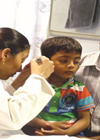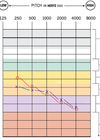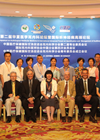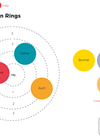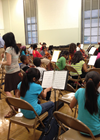ENT features
Cochlear implantation in the developing world: perspectives from the Indian subcontinent
Cochlear implants are an expensive technology, yet profound hearing loss is far from a developed-world phenomenon. On the contrary, incidences of both congenital and acquired hearing losses are high in the developing world. This article explains how an initiative in...
Cochlear implants for children
The field of cochlear implants in children has expanded remarkably over 40 years. Elizabeth Tyszkiewicz reflects on success and current challenges and calls for a national review of outcomes for young adults who received their implants in childhood. Aleena is...
A surgeon’s perspective on the challenges facing cochlear implantation in children
Cochlear implantation in children offers a different set of challenges and goals to adult practice. In this article, Iain Bruce, Professor of Paediatric Otolaryngology in Manchester, UK, explains some of the current clinical and research challenges in paediatric cochlear implantation,...
Genetic research on hereditary hearing loss and clinical application in the Chinese population
Congenital deafness in China affects more people than the entire population of Australia. Prof Wang give us a comprehensive insight into one of the main congenital disabilities in China, looking into the causes of deafness and the benefits of genetic...
10 steps to improving transition to adult services
Children and parents like the reassurance that staying under the care of the team who looked after them from birth gives, but as the child approaches adulthood he / she must come under the care of a new team. This...
Ida Institute telecare tools help teens take charge of their hearing healthcare
In this article Ena Nielsen from the Ida Institute discusses new ways to put teens in the driver’s seat of their hearing healthcare needs. The teenage years can be a challenging time for any young person. When hearing loss is...
Using telehealth to engage teenagers
Can we use a teenager’s love of gadgets to re-engage them with their hearing technology? Gwen Carr reports on an innovative use of telehealth to support teenagers who are no longer visiting their hearing healthcare professionals. Parents of children and...
Exploring teenagers’ access and use of assistive hearing technology
Children require good signal-to-noise ratios for optimum listening and learning. The use of remote microphone technology can be of benefit, yet older children often resist using it. Jennifer Groth reviews the challenges facing older children in the use of remote...
Teenagers with misophonia
Misophonia can be a distressing condition for teenagers and can have devastating effects upon their home and school lives. There is little research in this area and, as Lucy Partridge explains, more is greatly needed in order to identify interventions...
Audiological evaluation and management of teenagers with tinnitus
There is a growing interest in investigating, understanding and managing tinnitus in children and adolescents, with several articles on the subject published in journals over the last year. Brian Fligor describes the approaches to consider when discussing tinnitus with teenagers....
The effects of leisure noise exposure on young people’s hearing
There is growing concern regarding the effects of leisure noise exposure on young people’s auditory system. Information provided by healthcare professionals should be evidence-based; Hannah Keppler discusses some recent findings about hearing in young people. Excessive noise exposure can lead...
Music, hearing, and education: from the lab to the classroom
Historically, research assessing the impact of musical training has focused on those children whose families are able to pay for private lessons. In this article however, Nina Kraus outlines the findings of one of her recent projects; assessing the impact...


